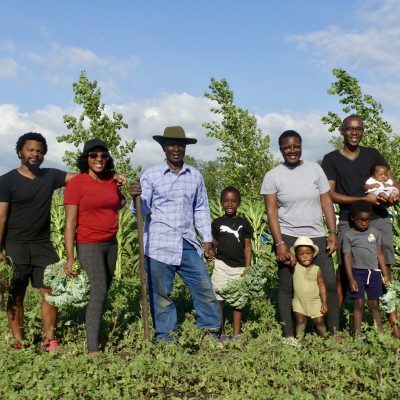Current Series – Building Community for Land Access – East African Farmers
Our next gathering is Sunday, October 22, from 3-6 pm at Scandia City Hall. Please register here!
We are in a moment where African farmers and gardeners, many who have farmed in their own countries and have been growing in community garden plots here, didn’t believe or know that they could be farming on a larger-scale. Now they are organizing and obtaining practical and financial training to aid in finding land and developing business models that will let them farm collectively in a community (e.g. cooperatives).
We want to make sure that landowners KNOW about these skilled farmers and the work they are doing to provide food to their communities and beyond. They are seeking training in order to farm as a business and want to develop relationships with landowners in order to obtain land access. We also want the wider community to learn about these groups of farmers and think about how they can support African local food producers where they live.
We know that this is a community-building process, and this series offers one way to start. Register for upcoming events as they are scheduled!
Please reach with any questions to: Robin Moore, Land Stewardship Project, rmoore@landstewardshipproject.org, 320-321-5244
Community makes opportunity.
Land access is at the center of most food, farming, and rural community conversations right now. Many emerging farmers cannot afford to buy land on the real estate market and are looking for either long-term leases or slower-paced sales, which usually requires a relationship with a landowner or retiring farmer.
We’ve also heard that landowners and retiring farmers often do not know beginning farmers that might be interested in leasing or eventually purchasing their land. Many have hopes that the farm will continue to grow food, be stewarded with care, and contribute to their community.
This means that we need opportunities to build community with each other, that’s why we’ve worked with other organizations: Kilimo, Renewing the Countryside, Sharing Our Roots, Women, Food and Agriculture Network, Big River Farms, and Commons Land to support more opportunities for landowners and landseekers to meet, learn more about each other, and build community to create opportunities for everyone.
As landowners and retiring farmers, you have a unique chance to create opportunities for new farmers. You’ve been acting on your conservation values – stewarding the soil and water while feeding your community. Here’s a chance to act on your social values, focusing on equitable and creative land transitions that respond to what the next generation needs to become resilient and sustainable farmers in their own right. We’ll help support you in figuring out what makes sense for you, your family, and the land…while also serving those who come next.
We understand that landowners may not be ready to jump right into a lease or sale, or that land seekers may be just trying to figure out their options before they start farming. These events meet you where you’re at, with opportunities to learn more and support for whatever your next step looks like. You don’t have to know exactly what you want or what’s next – but this is a good place to start thinking about it!
Land-owners are the key to the next generation of local foods, we can’t do this without you! Try out upcoming events and bring your neighbors and friends.
For those seeking land – finding land is challenging, and the needs, experience and visions of different communities and individuals all impact the why and how of connecting to land. These gatherings and events all give opportunities for you and your community to express your hopes and needs while giving you a chance to learn more about landowners’ hopes and needs. Gathering provides a chance to start to get to know each other, learn how to approach each other, and figure out how to best build community together. Your voice and vision is critical in building the food community and stewardship systems we need moving forward. 
